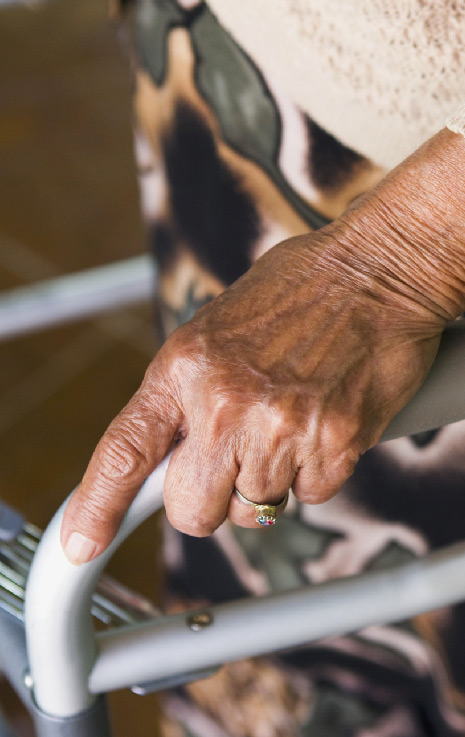The CTI® is uniquely focused on providing patients and family caregivers with the skills, confidence, and tools they need to assert a more active role in their care and ensure that their needs are met. Unlike most of the current approaches available, the CTI® was co-designed with patients and families and was evaluated using the most rigorous scientific approach – randomized controlled trials.

Our Key Findings
Patients who received the CTI® were significantly less likely to be readmitted to the hospital, and the benefits were sustained for five months after the end of the one-month intervention.
Thus, rather than simply managing post-hospital care in a reactive manner, imparting self-management skills pays dividends long after the program ends. Anticipated net cost savings for a typical Transitions Coach® panel of 350 chronically ill adults with an initial hospitalization over 12 months is conservatively estimated at $365,000. Patients who received this program were also more likely to achieve self-identified personal goals around symptom management and functional recovery.
Looking to be successful under bundled payment or ACOs? Here is why the CTI® is a great fit!
20-50%
reduction in hospital readmissions
When organizations are trained by the Care Transitions Program® and follow model fidelity, they can expect reductions in readmission rate of 20-50% (reduction depends on current readmission rate). Reducing readmissions can also improve your CMS Star rating.
$365K
net saving per Transitions Coach®
An Independent evaluator estimates a $110 PMPM cost savings.
![]()
52%
Patients meeting or exceeding self-identified personal care goals
The majority of patient goals reflect better quality of life and improved functional status.
Eastern Virginia Care Transitions Partnership Outcomes
PDF download (2.12MB)
Meritage ACO CTI Results
PDF download (75 KB)
Dominican Sisters Family Health Service, Inc. Success Using the CTI® in the CMS CCTP
PDF download (1.1MB)
North Mississippi Medical Center Reduces Heart Failure Readmissions through CTI® and Simulation
PDF download (445KB)
CTI® Coaching Decreases Re-admission and Costs for Medicare patients
PDF download (226KB)
Finger Lakes Health System Agency demonstrates significant reduction in readmissions sustained for at least 90 days
Abstract from the 2014 AcademyHealth ARM
PDF download (288KB)
The Impact of Kaua’i Care Transition Intervention on Hospital Readmission Rates
PDF download (194 KB)

Health care services for improving quality care and safety of patients during transitions across care settings





